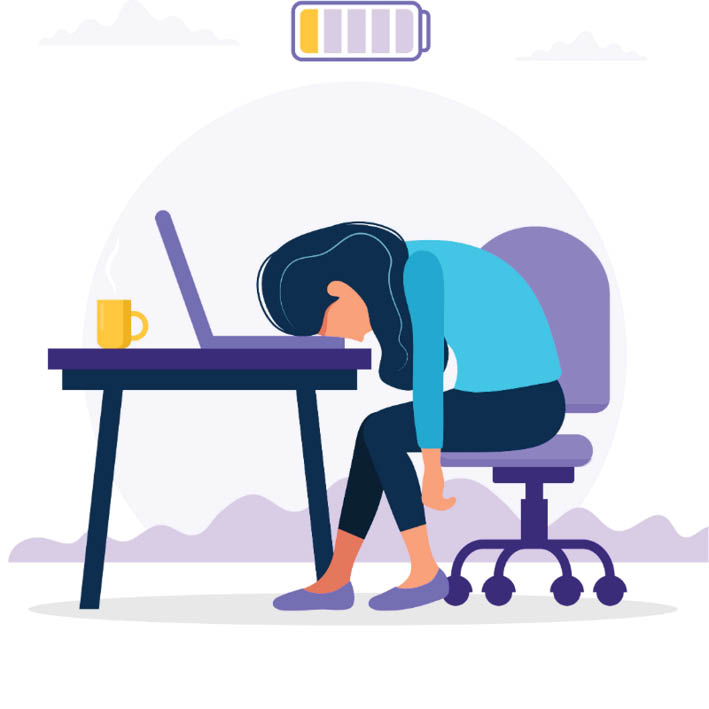Aviva Damania is a Psychologist – Mental Health Specialist, trained at City University of London (MSc Mental Health). She began counseling in 2014 as a Volunteer Counsellor at Charities in Mumbai, and has practiced at Masina Hospital and has got extensive experience working with adults, adolescents and children. Aviva is the founder of ‘The Mind Essentials’ – a platform for online counselling (video call, call, chat), which comprises 15 counsellors and psychologists, and is also committed to a long-term investment in marginalised people. Senior Manager at Pittie Group, Aviva Damania shares significant symptoms, solutions and insights into numerous concerns which affect our mental wellbeing. To avail her professional counseling services, (chat/ phone/ video call), E-mail her at: avivadamania18@gmail.com
The outbreak and spread of the coronavirus has impacted every part of our society, significantly challenging our mental health. Organisations shutting down, mass firings, salary cuts, working from home, etc. and other resultant measures have undoubtedly impacted the mental health of employees. Just about everyone is impacted – from the CEO to the intern! Some employee issues – besides general anxiety, stress and depressive feelings – include financial insecurity, job insecurity and future employment, blurry lines about work hours, parents having to multitask and handle household work, working in cramped home spaces which are put to multiple uses as a gym, school, etc.
What Employees Must Do: Although employee mental health during this pandemic is the joint responsibility and ethical obligation of managers and employers, employees must be proactive too. The duty of care starts with yourself! Employees must remember to keep your mental health in check, by mimicking their usual routine; sleep cycle, work hours, exercise, nutrition. Speaking up about issues they may be facing when working from home will help.
When working from home, set up a designated work station with your essentials alongsie, free from distractions. Remember to take breaks. Set a fixed working time with the manager and team and be sure to tune out of work and tune into yourself after that by exiting your work station and packing up your things. Working from home can sometimes be demotivating and may make you feel sluggish. Combat that by getting out of your home-wear and into your work clothes during work hours.
Effective time management by using checklists, priority lists and so on can help you plan and reduce your stress due to piling up of work. Be sure to include other duties you may have too, such as household work, managing children and so on. It’s a good time to flag off any mental health conditions you haven’t disclosed to get some additional support during this time. Don’t be lax with work, these tough times are not only a psychological test, but also a test of your performance at work. Remember that good work means good mental health.

What Managers Could Do: While business leaders provide macro support, it is the managers that can provide more specific and direct support to employees. Managers should be empathetic with the employees – be there for your co-workers, remember to celebrate birthdays like you may have earlier at work. Managers must remain virtually connected with the team, not only for matters of work but also for emotional support.
Managers can set up on one-on-one chats and check up on team members and see how they are doing. Be sure to extend your empathy and support during this time. Set up a clear transparent system with regards to deadlines, work timings, supervision. Try and incorporate virtual lunches or coffee breaks with the team but still respect the boundaries of team members. Not everyone’s home context is the same, it may be harder for some to be available due to household demands.
What Employers And Organisations Could Do: Employers who do not prioritise employee mental health and wellbeing are being shamed at a high rate, adversely affecting reputation. Don’t assume that all employees will be comfortable working from home, the lockdown may be entrapping and may affect the employees more than you know. Use this time to build on the organisation culture, which prioritises mental health. As a leader, it is important to be open and clear in communication that may impact employees such as firing, salary cuts and so on. Allow employees and managers time and mental space to prepare. Work from home is far from ‘business as usual’, so adopt an open-door policy and make adjustments to improve the morale and urge managers to do the same. Your support during this time will go a long way in terms of organisation loyalty. Be the voice of hope/reassurance during these times of crisis.
- Let’s Pledge To Positivity This Navroz! - 15 August2020
- Employee Mental Health during coronavirus (COVID-19) - 1 August2020
- Psychological Perspective: The ‘Bois Locker Room’ - 16 May2020
